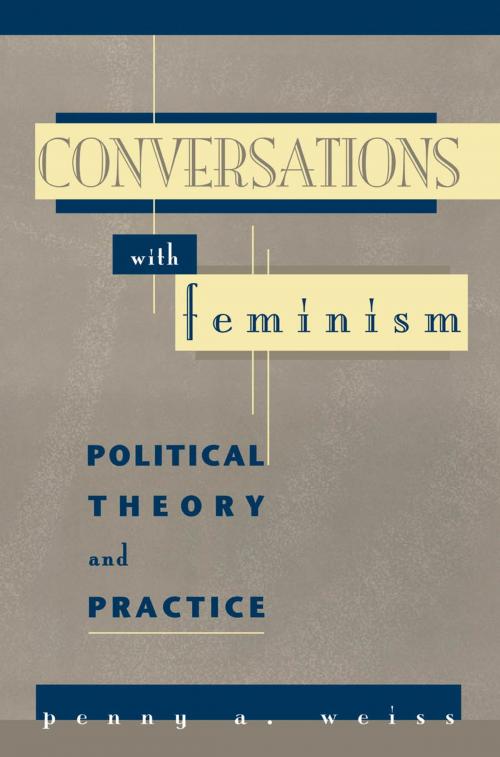Conversations with Feminism
Political Theory and Practice
Nonfiction, Social & Cultural Studies, Social Science, Gender Studies, Women&| Author: | Penny A. Weiss | ISBN: | 9780742575332 |
| Publisher: | Rowman & Littlefield Publishers | Publication: | March 19, 1998 |
| Imprint: | Rowman & Littlefield Publishers | Language: | English |
| Author: | Penny A. Weiss |
| ISBN: | 9780742575332 |
| Publisher: | Rowman & Littlefield Publishers |
| Publication: | March 19, 1998 |
| Imprint: | Rowman & Littlefield Publishers |
| Language: | English |
Applying the idea of conversation broadly, Penny A. Weiss offers a collection of essays that are either constructed dialogues, letters, or discussions about voice and silencing. Conversation emerges as both a theory and a method of feminist political inquiry and practice. The most vocal participants in Weiss' conversations are historical political thinkers both within the Western canon (Plato, Aristotle, Machiavelli, Rousseau) and beyond its confines (Astell, Coopers, Wollstonecraft, de Pizan). Other figures appear as well, from Anita Hill and U.S. Supreme Court justices to the author's own students and children. Conflicts between feminists and anti-feminists frame some essays, while others represent debates within feminism. This unique collection is unified by a commitment to dialogue as a part of feminist ethics, strategy, and pedagogy, and builds upon the belief that a conversational approach does not preclude disagreement or contrasting stories, but requires them. Conversations With Feminism is an important book for students and scholars of political theory, philosophy, and women's studies.
Applying the idea of conversation broadly, Penny A. Weiss offers a collection of essays that are either constructed dialogues, letters, or discussions about voice and silencing. Conversation emerges as both a theory and a method of feminist political inquiry and practice. The most vocal participants in Weiss' conversations are historical political thinkers both within the Western canon (Plato, Aristotle, Machiavelli, Rousseau) and beyond its confines (Astell, Coopers, Wollstonecraft, de Pizan). Other figures appear as well, from Anita Hill and U.S. Supreme Court justices to the author's own students and children. Conflicts between feminists and anti-feminists frame some essays, while others represent debates within feminism. This unique collection is unified by a commitment to dialogue as a part of feminist ethics, strategy, and pedagogy, and builds upon the belief that a conversational approach does not preclude disagreement or contrasting stories, but requires them. Conversations With Feminism is an important book for students and scholars of political theory, philosophy, and women's studies.















